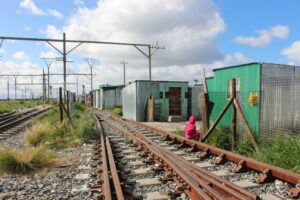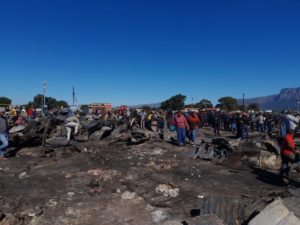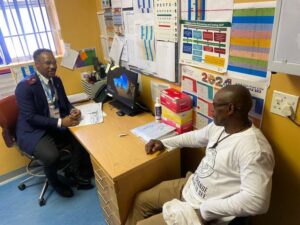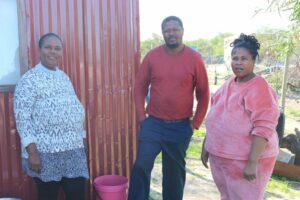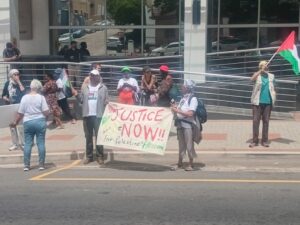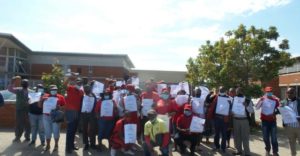
A detailed report by the Mining Affected Communities United in Action (Macua) has uncovered R284-million, meant to benefit local communities, that has been lost to shocking levels of corruption and neglect.
Launched on the 15th of May, the report shines a spotlight on what Macua has named “crumbs capture”, referring to a system where even the small share of profits meant for community development is looted by big companies, leaving people with nothing but broken promises.
“Crumbs capture” is a term coined by Macua to describe the way mining companies mismanage or steal funds that are supposed to help communities. These are legally required development commitments, known as social and labour plans (SLPs), which companies agree to when they apply for mining rights. Instead of using these funds to build clinics, schools, or provide job training as promised, the report says companies are inflating costs, faking completion reports, and working with politically connected individuals to siphon off the money.
“This is a morally bankrupt system in which even the limited funds earmarked for development are misappropriated,” Macua says in the report. “It’s a system where even the crumbs are stolen.”
Macua audited 11 mining operations in the provinces of North West, Northern Cape, Limpopo, Mpumalanga, and Free State. These audits found that while companies had committed R376.25-million to community projects, only R92.25-million could be verified as actually spent. That leaves R284-million unaccounted for.
“This money could have built clinics, roads, and skills centres,” says Macua. “Instead, what we found were abandoned sites, unfinished projects, and empty buildings.”
One community in Mononono, North West, saw only 10% of projects completed – despite the mining company claiming full delivery. In Rabokala, just 7.1% of projects were finished. In some places, like the MNS mine, no projects were delivered at all.
The report warns that this is not just happening in a few places but is part of a national pattern. If this level of theft is happening across all mines in South Africa, Macua estimates the total could reach a staggering R25-billion in misused development funds. The group says the government is partly to blame. “The Department of Mineral and Petroleum Resources has failed in its duty,” the report says. “It rubber-stamps company reports without checking if the projects were actually completed.”
Parliament is also criticised for accepting false reports from the mining industry without asking tough questions. “This is not just neglect – it’s complicity,” Macua says.
One of the most alarming cases comes from Magojaneng in the Northern Cape, where United Manganese of Kalahari (UMK) – a company partly owned by Chancellor House, the investment arm of the ANC – allegedly failed to deliver R172-million worth of promised community projects. Despite claims of clinics and roads being built, residents reported seeing no infrastructure like this.
“Facilities meant to serve the public remained incomplete, dysfunctional, or entirely absent,” the report states.
The report is filled with testimonies from people who live in mining-affected areas. They speak of fetching water from unsafe sources, watching half-built schools fall apart, and being excluded from decisions that affect their lives. Women were more significantly impacted and were left out of consultations, missed out on job opportunities, and were forced to carry the burden of poverty and environmental damage.
Macua’s investigative report is a demand for action. The group is calling for full investigations, community-led oversight of mining funds, and a complete overhaul of how SLPs are monitored and enforced.
“This is a charge sheet against a system that criminalises poverty and rewards plunder,” the report concludes. “It is time to reclaim what has been stolen.”
